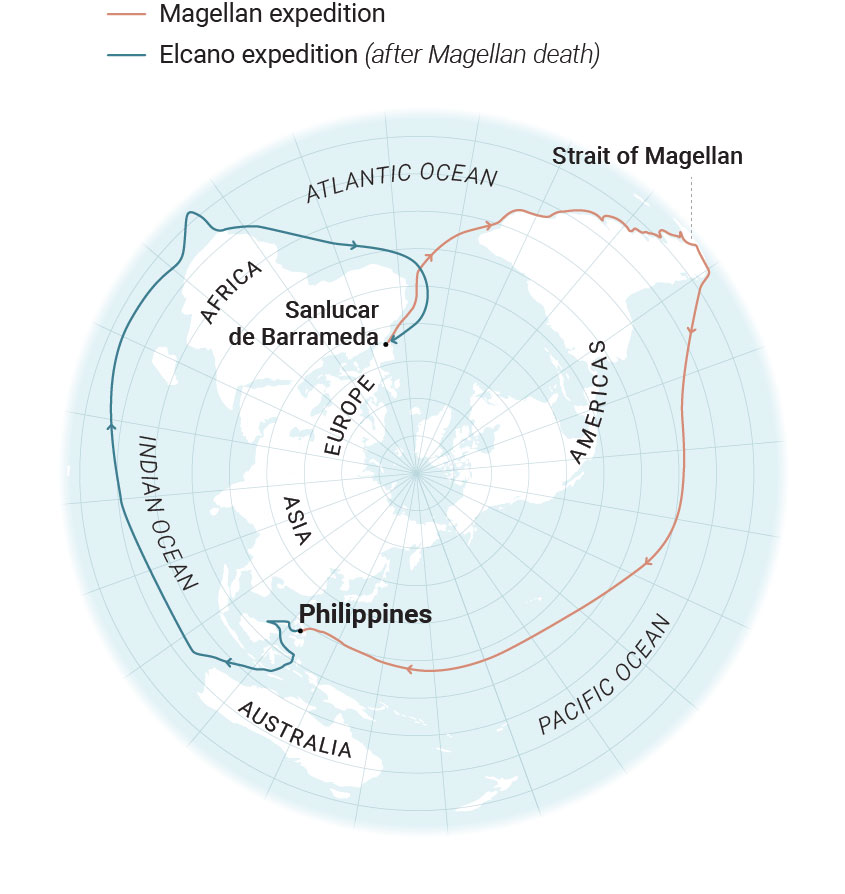In which the SCMP shows off a bit of multi-media razzle-dazzle.
From the South China Morning Post:
The China Ship
May 6, 2018
Globalisation is thought to have its beginnings in the 16th century when the Spanish silver dollar went transcontinental. Its acceptance as common currency arose when Spanish navigators in the Philippines established a circular shipping route, known as the tornaviaje, between Asia and the Americas. More than 250 years of uninterrupted trade ensued between Asia and the rest of the world. And the ships playing this route were known as China Ships
Magellan-Elcano circumnavigation
In 1519 a Spanish fleet of five vessels, under the command of Portuguese explorer Ferdinand Magellan, set sail from Seville in search of a route across the Pacific Ocean to East Asia. Magellan was killed in a battle during the voyage, leaving Spanish navigator Juan Sebastian Elcano and 18 surviving crew to become the first to circumnavigate the globe in a single expedition. Their expedition finally returned home to Spain in 1522

Magellan’s arrival in the Philippine Archipelago on March 15, 1521 was the first encounter between Spaniards and the people of the Philippines.
The tornaviaje discovery
Between 1526 and 1540, Spain sent two more expeditions to the Philippines, but neither completed the return journey to the Americas. A fourth expedition, led by Miguel Lopez de Legazpi, arrived in the Philippines in 1565. While many of the crew settled on the islands, one sailor named Andres de Urdaneta had a very important job to do
Andres de Urdaneta
(1498-1568)
Andres de Urdaneta was commissioned by King Philip II to lead an expedition back to New Spain as soon as possible, plot the return passage and establish trade routes across the Pacific Ocea.
An Augustinian friar, sailor and author, Urdaneta would become one of the Pacific Ocean’s most knowledgeable European navigators. He sailed north, crossing the Pacific near 40°N latitude, arrived in Acapulco 130 days later from Cebu. From there, he discovered a return maritime route to the Americas and, more significantly, kept records and navigation charts of his odyssey
Because of his efforts, the world’s longest maritime route was established. It would endure for 250 years
...MUCH MORE
The Round Trip...